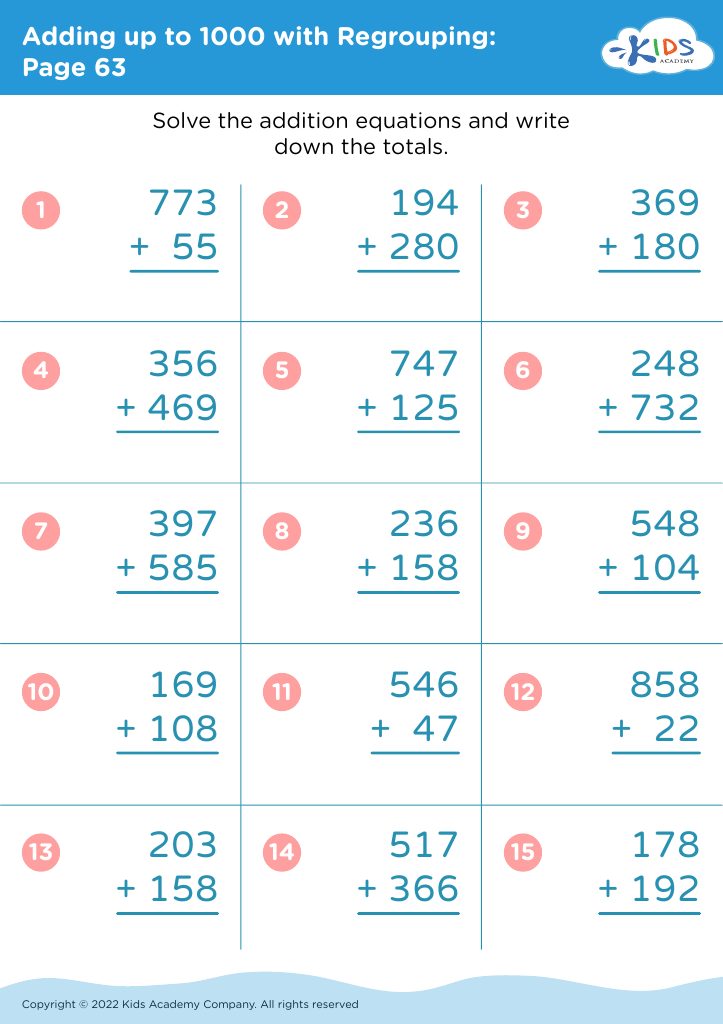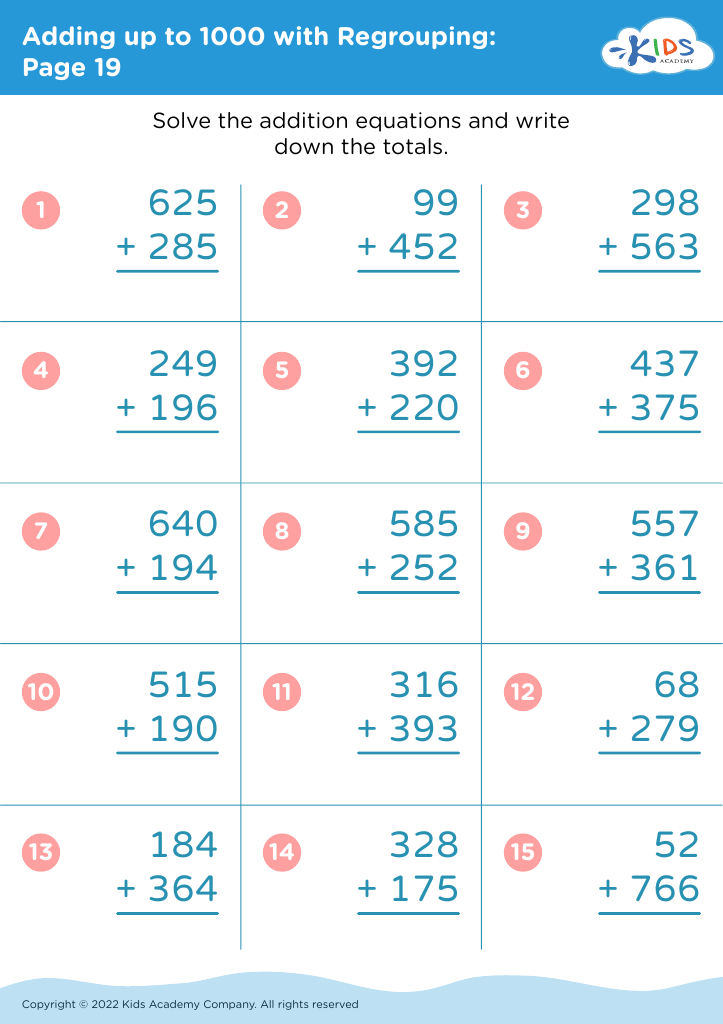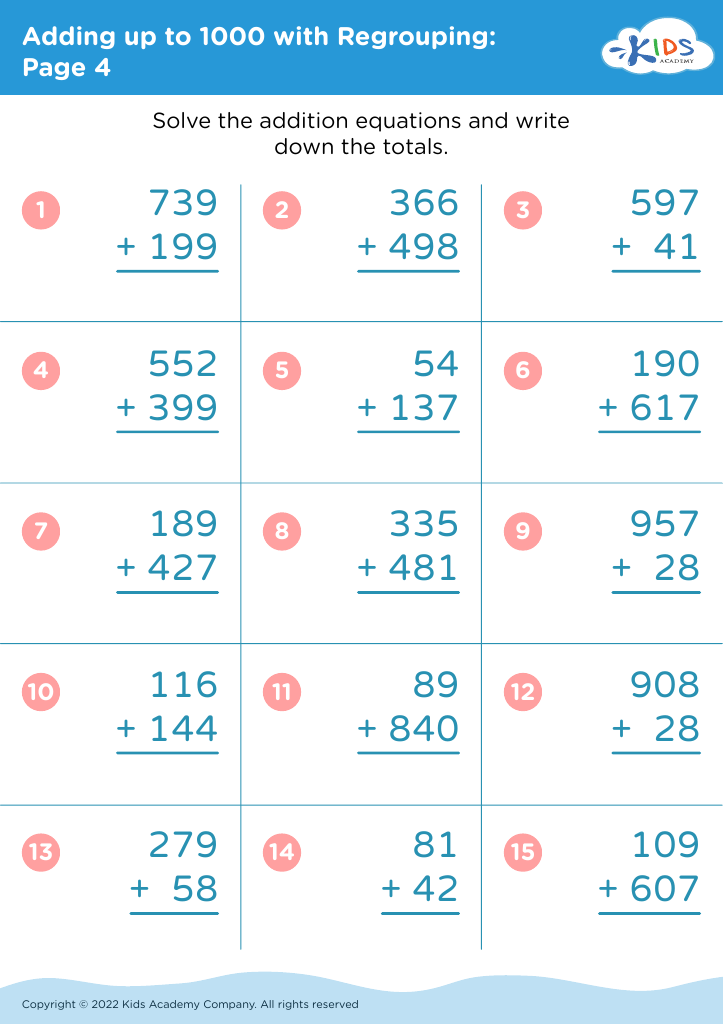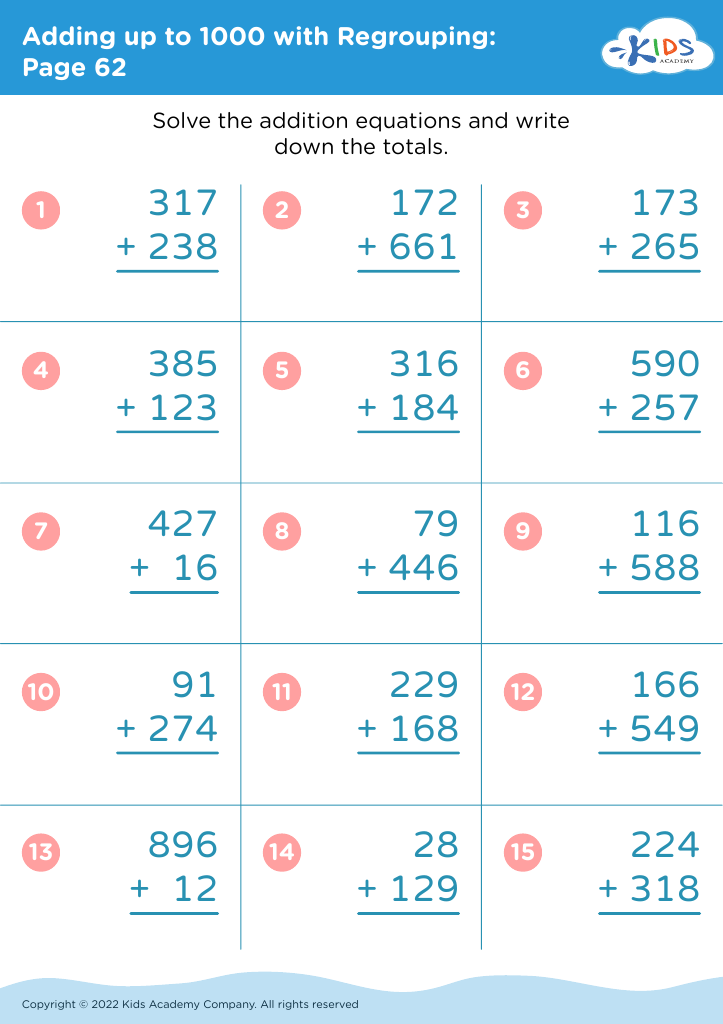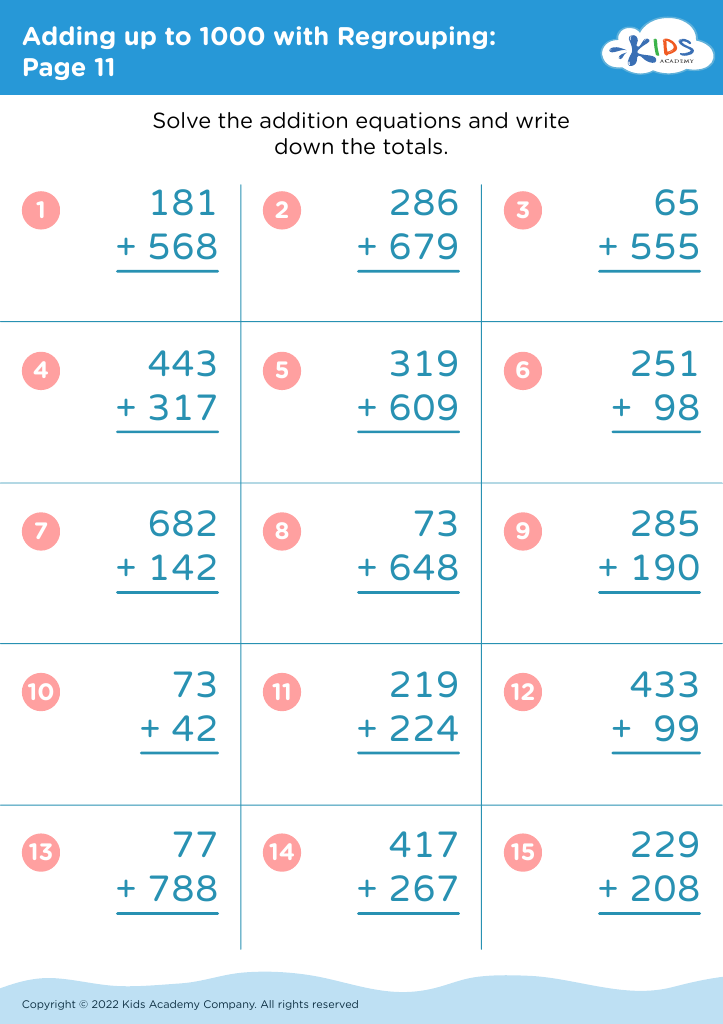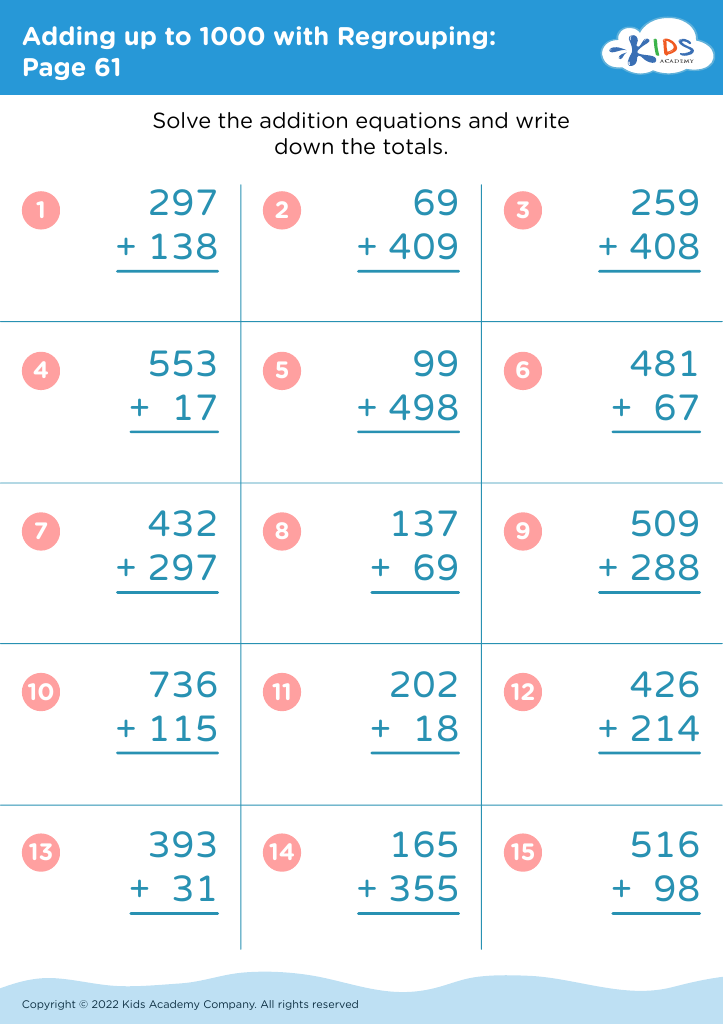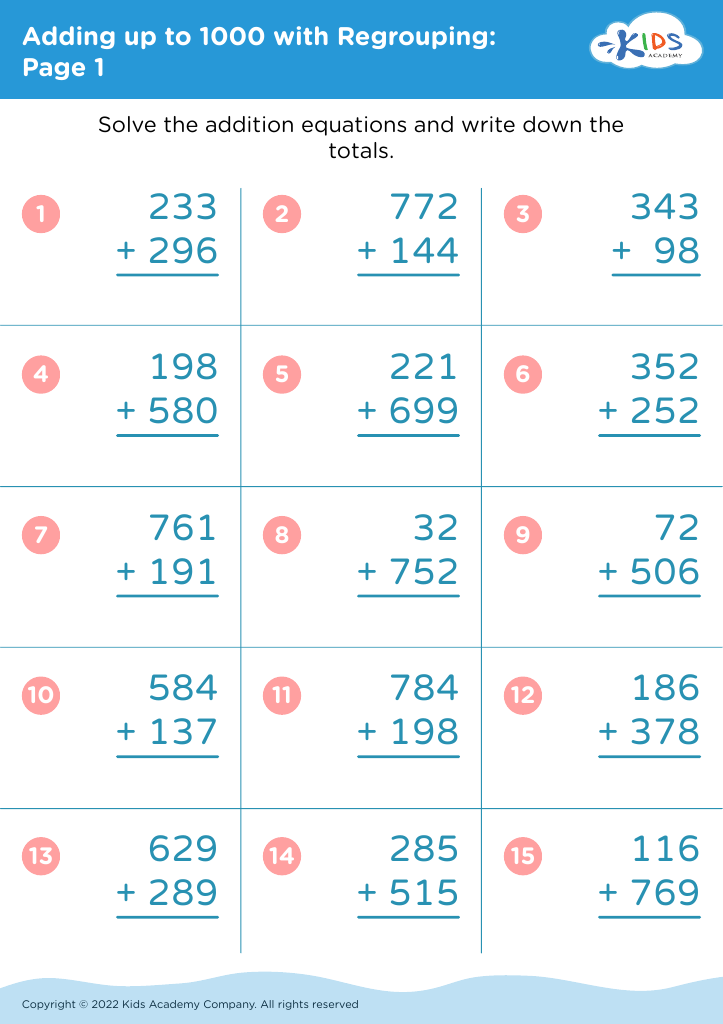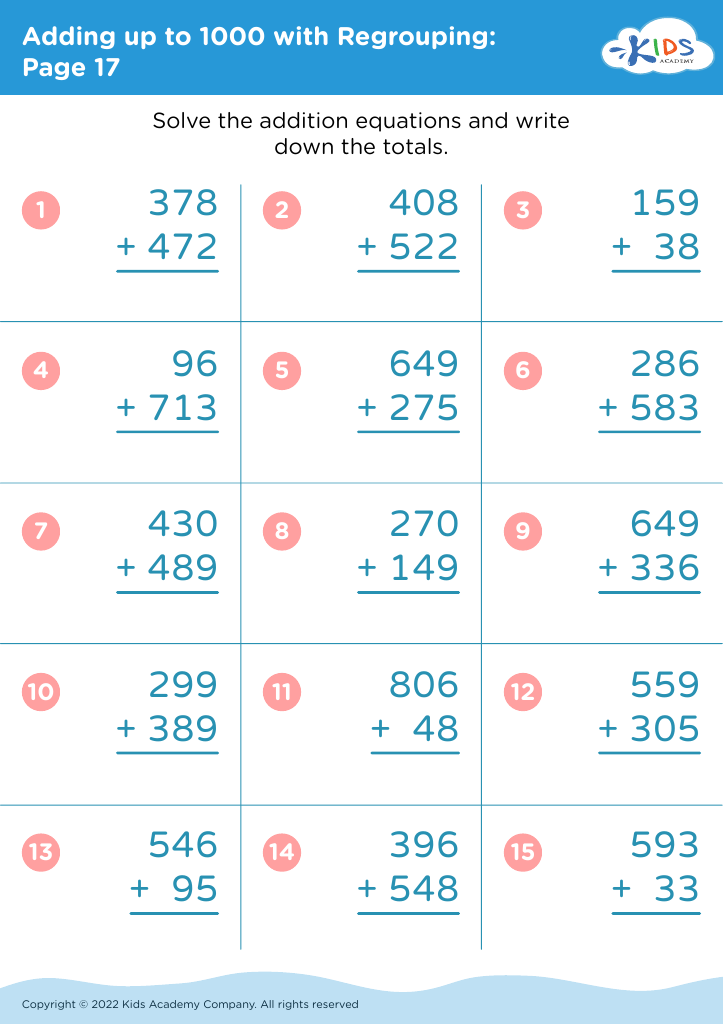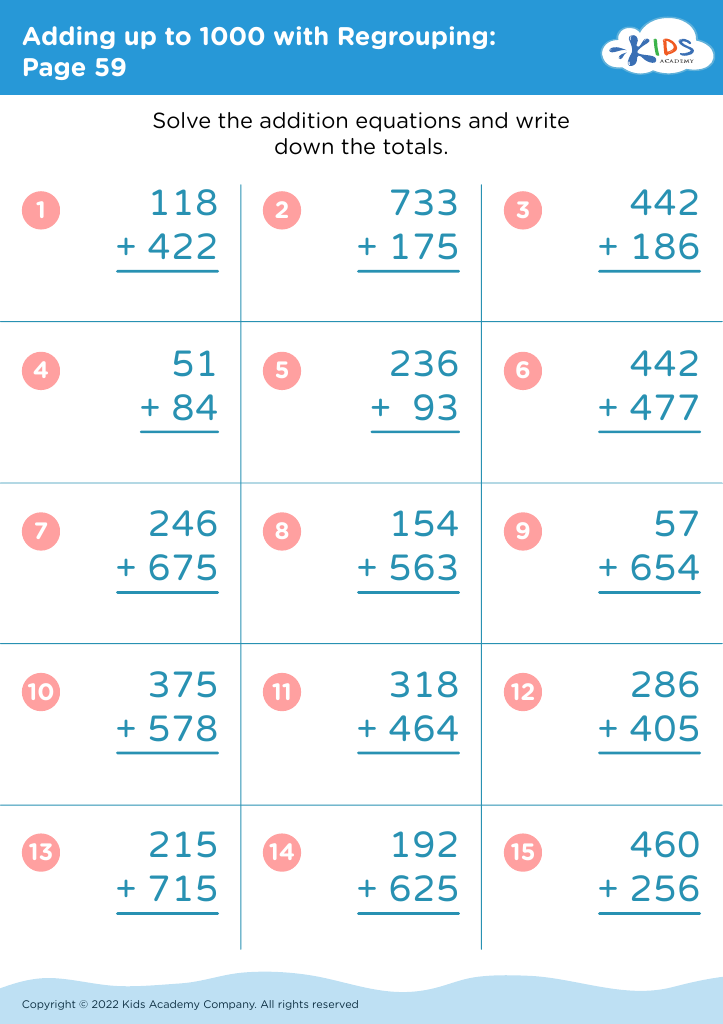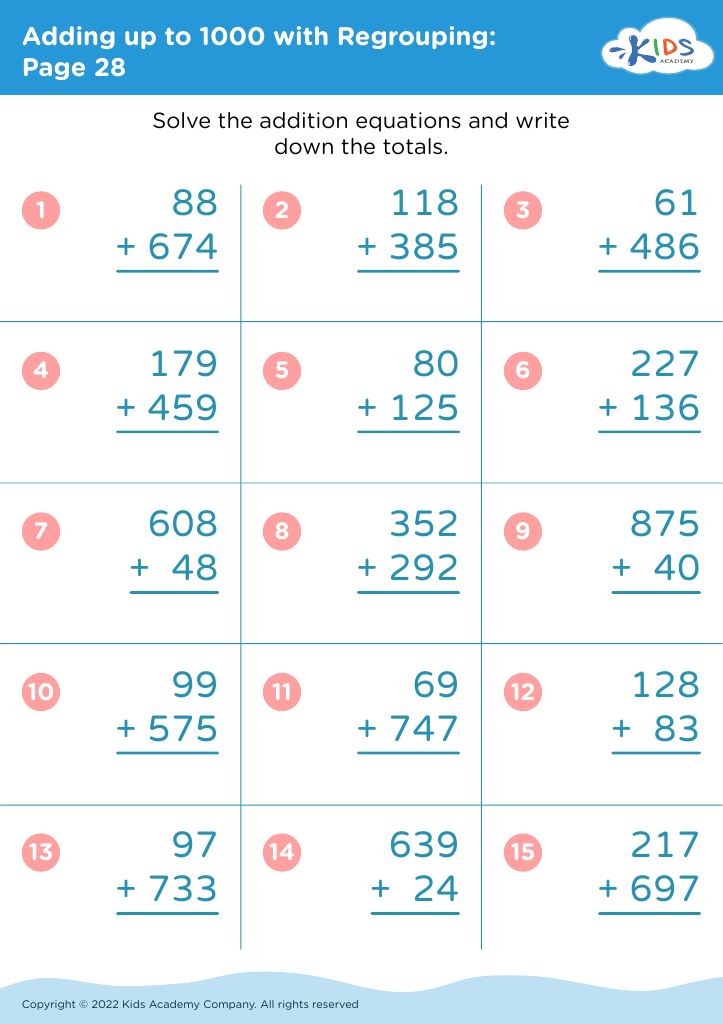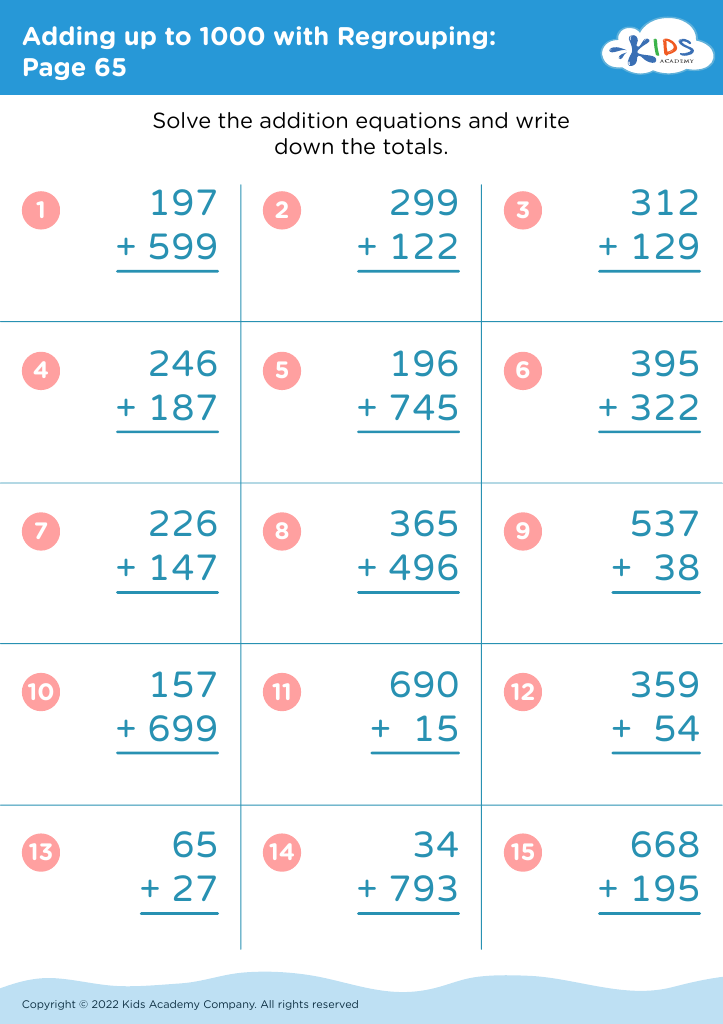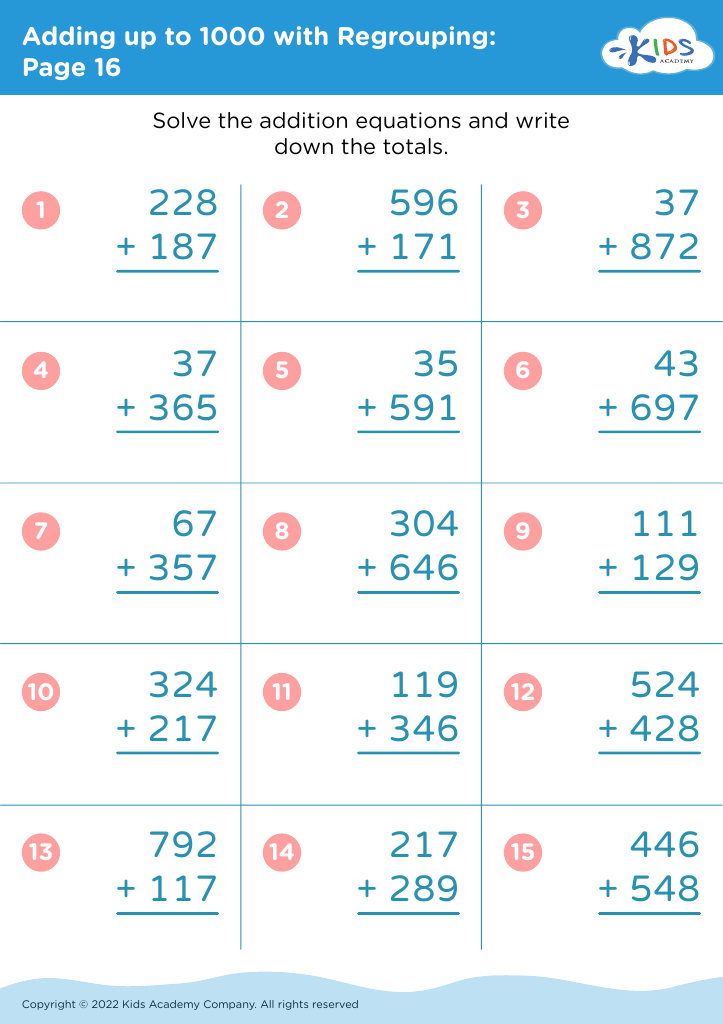Understanding fractions Adding up to 1000 with Regrouping Worksheets for Ages 5-8
18 filtered results
-
From - To
Discover our engaging “Understanding Fractions: Adding Up to 1000 with Regrouping Worksheets” designed for children ages 5-8. This resource helps young learners grasp the essentials of fractions while practicing addition with regrouping. Our interactive worksheets provide colorful visuals and age-appropriate exercises that make learning about fractions fun and exciting. Children will develop critical math skills as they solve problems involving fractions and apply regrouping techniques. By reinforcing these concepts, your child will build confidence in math and enhance their problem-solving abilities. Perfect for classroom instruction or home practice, these worksheets are a valuable tool for early math education. Explore now!
Understanding fractions and the concept of regrouping can be crucial for children aged 5-8, as this age group is laying the foundation for more advanced mathematical skills. When parents and teachers focus on understanding fractions, they help children grasp the basic idea of part-whole relationships, which is essential not only in math but also in everyday life situations. For instance, sharing pizza or dividing toys amongst friends requires a grasp of fractions.
Adding up to 1000 with regrouping reinforces a child’s ability to manipulate numbers, which fosters critical thinking and enhances problem-solving skills. Regrouping, or carrying, teaches children how to organize and break down complex problems into manageable steps. This is important in developing their overall mathematical fluency and confidence.
Moreover, fostering an understanding of these concepts early on prepares students for future math challenges and builds a strong base for concepts such as addition, subtraction, and even more complex operations. When parents and teachers prioritize these skills, they are not just teaching math; they are also encouraging logical reasoning, persistence, and a love for learning that will serve children well throughout their educational journey. Ultimately, investing in these learning experiences will have a lasting impact on a child's academic success.
